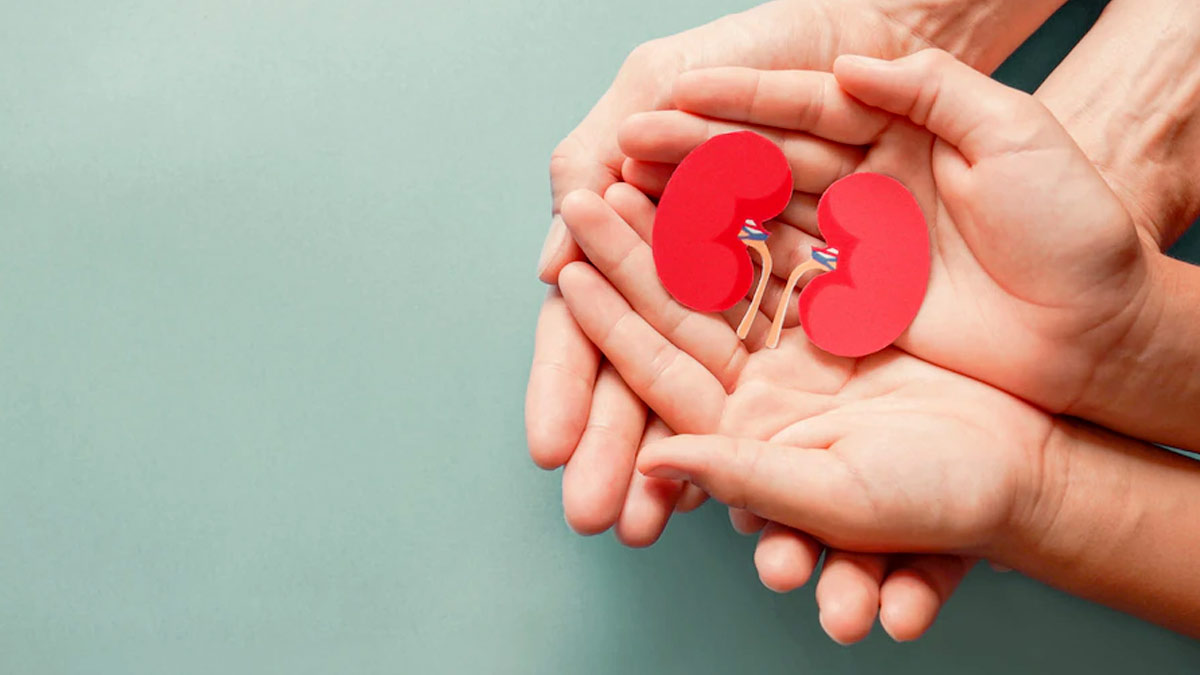
Each year, June 16 is observed as World Kidney Cancer Day to create awareness about the disease, its symptoms, management and treatment. Kidney cancer is the 13th most prevalent type of cancer around the world and accounts for about 1.8 lakh casualties each year globally. While traditionally Kidney Cancer has been found to be more prevalent among individuals aged above 40, of late the disease has been traced among the younger population as well. Like in other forms of cancer, early diagnosis of the tumor plays the most critical role in the successful treatment of the disease and recovery of the patient.
Table of Content:-
Early diagnosis of kidney cancer can be challenging. This is because the kidneys are located deeper within the body and the formation of the tumor and its early growth are likely to go unnoticed. Often, kidney cancer is only diagnosed when the tumor has grown substantially and starts hindering the normal functioning of kidneys. Onlymyhealth spoke to Dr. Chandrakanth MV, Oncologist at Narayana Health, Kolkata, to know more about kidney cancer.
Kidney Cancer symptoms you should not ignore

Symptoms of kidney cancer include back pain, stomach ache, loss of appetite, fatigue, weight loss, etc. Hence, it is extremely important for one to take these seriously if these symptoms persist for an extended period of time. According to Dr. Chandrakanth, the five most common symptoms for Kidney Cancer are:
1. Blood in urine aka hematuria
Since both the kidneys are directly affected by the cancerous tumor, their functioning is impaired. This may lead to passage of blood along with urine. This symptom is arguably the most common symptom among kidney cancer patients. The patients experience the color of their urine turn red or black in different shades along with sharp twinges of pain while urinating. While there are chances that it might only be a symptom of a commonly prevalent and treatable urine infection, if the symptom persists for a long period of time, consider consulting an expert about the possibility of kidney cancer.
Also read: Oncologist Explains Everything About Kidney Cancer and Treatment
2. Lump in your abdomen
A growing tumor will also result in swelling of organs near the abdomen or the lower back.. A lump that has suddenly surfaced in the abdomen region or lower back and does not vanish over time warrants a visit to the doctor and diagnostic tests for Kidney Cancer.
3. Acute Weight loss and fatigue
Since the pair of kidneys are unable to fulfill their primary function of purifying the blood and removing waste products, the body keeps losing large amounts of blood. The loss of blood can lead to extreme fatigue, sudden weight loss and a general loss of appetite.
4. Anemia

The loss of blood can also lead to anemia. Individuals who are anemic should also look out for other symptoms of Kidney Cancer and consume nutritious diets and supplements to increase their blood count.
Also read: Obesity Can Put You At A Higher Risk Of Kidney Cancer, Know Other Factors From An Expert
5. Unexplained long fever
A large number of Kidney Cancer patients also experience a long bout of high fever without any apparent cold or viral infection related cause. In such cases the fever does not subside despite medication. Often high fever is accompanied with swelling in legs and ankles. Such a situation also demands a doctor’s visit and diagnostic testing for Kidney Cancer.
Once the tumor has spread to other organs of the body apart from kidneys, more severe symptoms such as coughing up blood, shortness of breath, and acute pain in bones begin to appear. It is critical to stop the progress of the tumor early by recognising the above mentioned symptoms and getting diagnostic tests done. The most common methods of diagnosis for Kidney Cancer are urine test, blood test and CT scans.
Due to the rise in the number of cases over the years, it has become important to spread awareness and initiate conversations about kidney cancer. The treatment for advanced kidney cancer has evolved significantly over the last decade. These include a variety of options including surgery, immunotherapy and targeted therapy. At times doctors even recommend using a combination of these. There are also multiple patient assistance programs available for expensive treatments. Early diagnosis is key to managing Kidney cancer.
Also watch this video
How we keep this article up to date:
We work with experts and keep a close eye on the latest in health and wellness. Whenever there is a new research or helpful information, we update our articles with accurate and useful advice.
Current Version